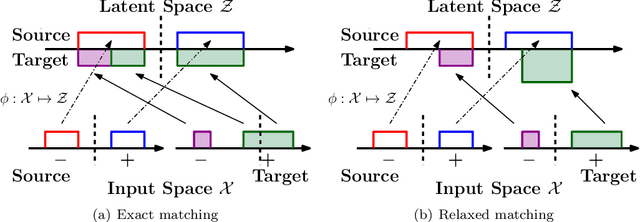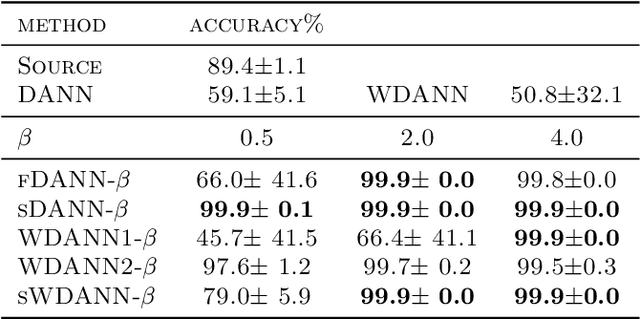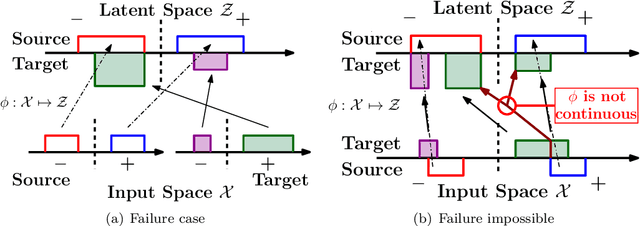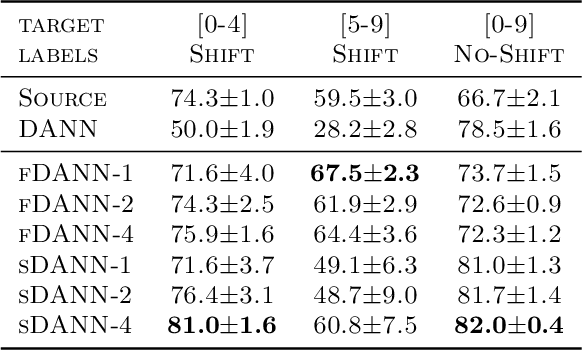Domain Adaptation with Asymmetrically-Relaxed Distribution Alignment
Paper and Code
Mar 11, 2019



Domain adaptation addresses the common problem when the target distribution generating our test data drifts from the source (training) distribution. While absent assumptions, domain adaptation is impossible, strict conditions, e.g. covariate or label shift, enable principled algorithms. Recently-proposed domain-adversarial approaches consist of aligning source and target encodings, often motivating this approach as minimizing two (of three) terms in a theoretical bound on target error. Unfortunately, this minimization can cause arbitrary increases in the third term, e.g. they can break down under shifting label distributions. We propose asymmetrically-relaxed distribution alignment, a new approach that overcomes some limitations of standard domain-adversarial algorithms. Moreover, we characterize precise assumptions under which our algorithm is theoretically principled and demonstrate empirical benefits on both synthetic and real datasets.
 Add to Chrome
Add to Chrome Add to Firefox
Add to Firefox Add to Edge
Add to Edge